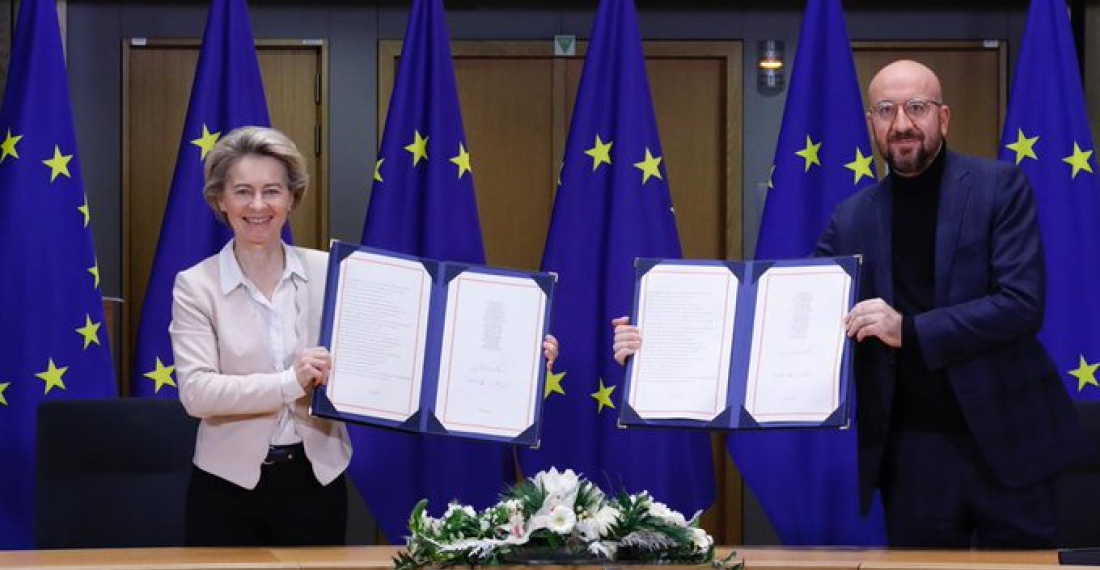The European Union and the United Kingdom are set to open a new chapter in their relations, based on an agreement reached by the two sides after Brexit saw the UK leaving the EU.
This morning, on behalf of the European Union, the President of the European Council and the President of the European Commission signed the EU-UK trade and cooperation agreement. This agreement will now be brought to the United Kingdom to be signed by Prime Minister Boris Johnson, before being provisionally applied as of 1 January 2021.
Charles Michel, President of the European Council: "The agreement that we signed today is the result of months of intense negotiations in which the European Union has displayed an unprecedented level of unity. It is a fair and balanced agreement that fully protects the fundamental interests of the European Union and creates stability and predictability for citizens and companies".
This agreement will then be examined by the European Parliament and the Council, before it can be ratified by the European Union.
In this context, it is of the utmost importance for the European Union and the United Kingdom to look forward, in view of opening a new chapter in their relations.
Charles Michel, President of the European Council:
"On major issues, the European Union stands ready to work shoulder to shoulder with the United Kingdom. This will be the case on climate change, ahead of the COP 26 in Glasgow, and on the global response to pandemics, in particular with a possible treaty on pandemics. On foreign affairs, we will seek cooperation on specific issues based on shared values and interests.
These are major issues that will have to be discussed on a regular basis, like we do with our strategic partners, and I am looking forward to such a cooperation."
source: commonspace.eu with the press service of the Council of the European Union.







